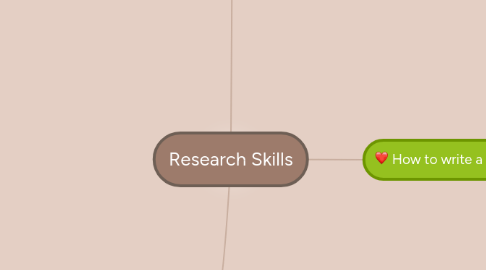
1. How to read a research paper?
1.1. read the abstract
1.2. read the introduction
1.3. read the conclusion
1.4. Skim the middle, looking at section titles, tables, figures, etc.—try to get a feel for the style and flow of the article.
1.4.1. Is it methodological, conceptual, theoretical (verbal or mathematical), empirical, or something else?
1.4.2. Is it primarily a survey, a novel theoretical contribution, an empirical application of an existing theory or technique, a critique, or something else?
1.5. Go back and read the whole thing quickly, skipping equations, most figures and tables.
1.6. Go back and read the whole thing carefully, focusing on the sections or areas that seem most important
1.7. Once you’ve grasped the basic argument the author is trying to make, critique it!
1.7.1. Ask if the argument makes sense. Is it internally consistent? Well supported by argument or evidence? (This skill takes some experience to develop!)
1.7.2. Compare the article to others you’ve read on the same or a closely related subject. (If this is the first paper you’ve read in a particular subject area, find some more and skim them. Introductions and conclusions are key.) Compare and contrast. Are the arguments consistent, contradictory, orthogonal?
1.7.3. Use Google Scholar, the Social Sciences Citation Index, publisher web pages, and other resources to find articles that cite the article you’re reading. See what they say about it. See if it’s mentioned on blogs, groups, etc.
1.7.4. Check out a reference work, e.g. a survey article from the Journal of Economic Literature, a Handbook or Encyclopedia article, or a similar source, to see how this article fits in the broader context of its subject area.
2. understand academic integrity
2.1. what is plagiarism?
2.1.1. take somebody's word and ideas, use it as your own.
2.2. outcomes of plagiarism
2.2.1. fail the class
2.2.2. get expelled from the university
2.3. real life examples
2.3.1. copy paste sentence from articles without citing it.
2.3.2. copy paste sentences from articles, but successfully cite it, get A+
3. How to write a research paper?
3.1. read your assignment carefully
3.1.1. Highlight topic guidelines, required length, and the types of information sources allowed.
3.2. understand your assignment
3.2.1. find the words that tell you what to do
3.2.2. find the words that limits your assignment
3.2.3. find the key theme in the assignment
3.3. pick a good topic
3.3.1. it interests you!
3.3.2. it meets the requirements of your assignment
3.3.3. it's broad enough to give you several search options.
3.3.4. it's focused enough that you're not overwhelmed with information.
3.4. identify potential ideas
3.4.1. browse a few resources for ideas and identify different aspects of the topic.
3.5. customize your topic
3.5.1. consider how different disciplines approach the same topic in different ways.
3.6. turn your topic into a question
3.6.1. who
3.6.2. why
3.6.3. what
3.6.4. where
3.6.5. how
3.7. decide what is your angle?
3.8. find your keywords
3.9. dive into a sea of resources!
3.9.1. general information and overview of topic
3.9.1.1. websites
3.9.1.2. encyclopedias
3.9.2. learn more about details of topic
3.9.2.1. books
3.9.2.2. newpapers
3.9.2.3. new sources
3.9.2.4. new magazines
3.9.3. find specific information about topic
3.9.3.1. scholarly jounals
3.9.3.2. statistical sources
3.9.3.3. government puclications
